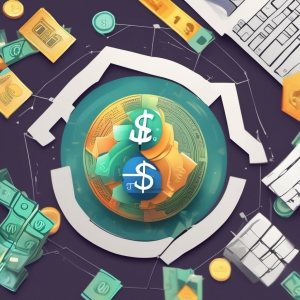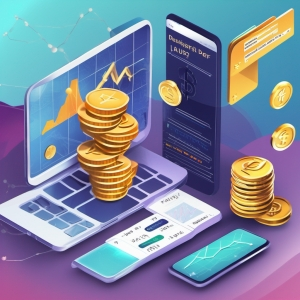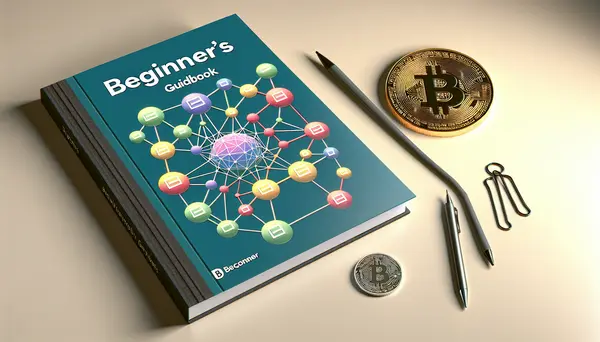Table of Contents:
Introduction to Decentralized Finance (DeFi)
Decentralized Finance, often referred to by its acronym DeFi, is reshaping the landscape of finance. This financial revolution offers open, unrestricted access to financial products and services, unconstrained by traditional banking systems. Unlike mainstream finance, where middlemen and regulations dictate terms, DeFi operates on a peer-to-peer framework using blockchain technology, mainly Ethereum. This ensures heightened security, transparency, and accessibility to all.
DeFi allows for the creation of financial structures and systems that are entirely flexible and not prone to censorship. Investors have unlimited access to lending, borrowing, yield farming, staking, decentralized exchanges, and more. These processes removed the barriers erected by geography, social status, and wealth, which typically characterize traditional finance.
The Best Mining Providers at a Glance
» Infinity HashFrom our perspective, currently the best mining provider on the market. With the community concept, you participate in a mining pool completely managed by professionals. A portion of the earnings are used for expansion and maintenance. We've never seen this solved as cleanly anywhere else.
» Hashing24A well-known and established cloud hosting company. With a good entry point and in a good market phase, a good ROI can also be generated with some patience. Unfortunately, we see the durations as a major drawback.
Given the importance and potential of DeFi, getting acquainted with its functioning and potential implications is crucial for both beginners and seasoned crypto enthusiasts. This article aims to demystify DeFi and provide a comprehensive understanding of its intricate operations.
What is Decentralized Finance?
Decentralized Finance, or DeFi, aims to recreate and improve upon traditional financial systems, but without the need for intermediaries such as banks or brokers. DeFi operates directly on the blockchain, a digital ledger that records transactions across many computers to maintain transparency and ensure the decentralization of data. This decentralized nature ensures that no single entity has complete control over the entire network.
DeFi platforms, powered by smart contracts - which are self-executing contracts with the terms of the agreement directly written into lines of code - offer financial services open to anyone with an internet connection. Users can participate directly in a wide range of financial activities. From loan issuance and borrowing to earning interest on capital and trading assets, these activities can occur without the need for a trusted third party.
One key factor that sets DeFi apart is the use of cryptocurrencies as the primary medium of exchange. These digital assets represent value and facilitate transactions within the DeFi ecosystem. This opens up an array of new opportunities and innovations - from generating passive income with liquidity mining to playing financial games and exploring predictive markets. In essence, the goal of DeFi is to expand access, increase efficiency, and democratize the financial system.
| Pro | Con |
|---|---|
| DeFi provides a global, open alternative to every financial service. | DeFi still faces many hurdles in gaining mainstream adoption, including scalability issues and complex user experience. |
| Potentially higher returns than traditional financial systems. | The lack of a central authority means users are responsible for managing their own assets, which can be risky for inexperienced users. |
| Transparent smart contracts allow users to inspect the agreement's mechanisms and safety. | DeFi platforms are still vulnerable to bugs, and security is only as good as the weakest link in the smart contract code. |
| It's permissionless which means anyone with an internet connection can access DeFi platforms, regardless of their location. | There are concerns around regulatory oversight due to the decentralized nature of DeFi, making it potentially a safe haven for illicit activities. |
Key Components of DeFi
The DeFi revolution is powered by various fundamental components. Understanding these key elements can provide more insights into DeFi's operations and potential.
DApps: Decentralized Applications, or DApps, are open-source applications operating on blockchain technology. In the DeFi ecosystem, DApps play a central role in financial transactions, allowing users to connect directly and perform operations without intermediaries.
Smart Contracts: These are digital contracts executed on the blockchain. As the backbone of DeFi, these contracts automatically enforce and execute the terms of an agreement, negating the need for an intermediary.
Stablecoins: To mitigate the extreme volatility of cryptocurrencies, DeFi utilizes stablecoins. These digital currencies are pegged to the value of a certain calm asset, like the US dollar, to ensure price stability within the DeFi ecosystem.
Decentralized Exchanges (DEXs): As the name suggests, these are open marketplace platforms where users can trade cryptocurrencies directly. Unlike traditional exchanges, DEXs operate on Blockchain and smart contracts, removing the need for an intermediary.
Yield Farming and Liquidity Mining: These are investment strategies in the DeFi landscape. They allow crypto holders to earn rewards or 'yield' on their assets. In essence, investors contribute their assets to a liquidity pool in exchange for rewards.
How DeFi is Transforming Traditional Financial Systems

DeFi is enacting remarkable transformations in the traditional financial ecosystem, powered chiefly by its decentralization. The conventional financial system is characterized by a central authority performing as the intermediary. They maintain control over systems, keep records, and facilitate transactions. DeFi, on the other hand, employs blockchain technology to eliminate the need for these authorities, offering more control and freedom to the individuals involved.
Moreover, global financial services have obstacles such as cross-border transaction complications, unacceptable credit history, slow and expensive service, etc. DeFi applications are addressing these issues by enhancing accessibility, speed, and reducing transaction costs. By using blockchain and smart contracts, DeFi is capable of providing a universal, open alternative to every financial service we use — savings, loans, trading, insurance, and more — accessible to anyone in the world with a smartphone and internet connection.
Another pivotal transformation induced by DeFi is in asset ownership. Traditional physical assets are often hard to divide and costly to transfer, requiring paperwork and involvements of intermediaries. DeFi, in contrast, promotes tokenization - turning real-world assets into tokens on a blockchain. This empowers individuals with the ability to fractionize ownership, thereby promoting flexibility in buying and selling.
In sum, DeFi poses a potential path to a more open financial system where anyone can access financial services without the need for traditional intermediaries.
Benefits of DeFi
DeFi is harnessed in many ways and offers a plethora of benefits, distinctively revolutionizing the finance ecosystem. Here are some significant advantages of DeFi over traditional finance:
Global Accessibility: Financial services in traditional systems often involve jurisdictional restrictions. DeFi, contrastingly, makes these financial tools accessible online to anyone, regardless of geography, facilitating financial inclusivity.
Transparency and Security: As DeFi operates on blockchain technology, every transaction and interaction is permanently logged and publicly viewable. This promotes radical transparency, and combined with secure cryptographic verification, ensures trust in the process.
Programmability: With smart contracts at the core of DeFi, financial mechanisms are programmable. This allows for intelligent automation and triggers, creating highly efficient and customizable financial services and products.
Permissionless and Interoperable: DeFi is permissionless, meaning anyone can create financial instruments without seeking approval from a central authority. Also, DeFi protocols are interoperable, sharing standards that allow them to collaborate and Complexify services, technically referred to as 'Composability'.
Efficient and Fast: Traditional financial transactions can be time-consuming due to paperwork and intermediaries. DeFi, however, operates with automated protocols and offers a seamless and instant transaction experience.
Risks Associated with DeFi

While the concept of DeFi raises tremendous potential for financial freedom and inclusivity, it is crucial to be aware of the risks involved. These risks might hold significant implications for users and investors.
Smart Contract Vulnerabilities: Although smart contracts are coded with high-level security measures, they are not entirely immune to bugs and hacking. If a smart contract is exploited, the impact could be significant, leading to substantial loss of funds.
Impermanent Loss: This refers to the loss experienced by liquidity providers due to the volatility of cryptocurrency. When the price of cryptocurrencies fluctuates, it can lead to a less favourable ratio than initially deposited, leading to potential losses.
Regulatory Uncertainty: Since DeFi operates in a decentralized structure, it falls in a gray area of financial regulations. Future changes in regulation could impact the DeFi markets and the rights of its participants.
Lack of Insurance: In traditional finance, deposits are often insured up to a certain amount. In the case of DeFi, however, such safeguards are typically lacking. In a world where everything is governed by codes, financial prudence becomes even more critical.
Future of DeFi
The future of DeFi holds tremendous promise and is poised to redefine the structure of financial services profoundly. With continuous advancements in blockchain technology, the DeFi landscape is expected to usher in more innovative financial products and services to democratize and decentralize financial transactions further.
Increasingly, major financial institutions and tech corporations are considering DeFi integrations due to its emphasis on inclusivity and open finance. The potential to include the unbanked population in financial systems and improve cross-border transactions highlights DeFi's promising future. Moreover, DeFi has the potential to bring about high transparency and fraud reduction in transactions by leveraging the immutable functionality of blockchain.
However, while the potential is vast, DeFi also faces challenges. It is still in its nascent phase, and for all its potential, it remains laced with hurdles like network scalability, volatile gas fees, and smart contract security flaws. Dealing with these challenges would constitute a significant part of DeFi's evolution ahead. Despite these hurdles, the DeFi movement remains one of the most noticeable developments of the crypto era, promising to revolutionize our traditional understanding of finance.
Conclusion: Understanding DeFi for a Better Financial Future

In conclusion, Decentralized Finance (DeFi) is paving the way towards a financial landscape that promises inclusivity, efficiency, and transparency. By replacing traditional intermediaries with secure and resilient blockchain systems, DeFi allows for limitless possibilities in the financial market. While there are risks and challenges, as with any disruptive technology, being well-informed about DeFi is the first step towards leveraging its full potential.
In a world where traditional banking isn’t accessible to all, DeFi opens up a way for every individual with internet access to connect with global economic activity. By offering financial instruments that are essentially borderless and not restricted by traditional rules, DeFi has the potential to democratize access to finance and foster economic growth manifold. It is indeed set to revolutionize the existing financial system by putting power back into the hands of the people.
While the realm of DeFi might seem complex at first, understanding its mechanisms can offer opportunities like never before. From its open nature that invites everyone to participate, to innovation in financial models, DeFi indeed heralds an era of unrestricted financial possibilities. So, gear up to understand, adapt, and immerse in this new financial reality that DeFi offers.
Remember, an informed investor is a successful investor. By understanding what DeFi is and how it works, you'll be better prepared to navigate the terrain and make informed decisions. So, welcome to the progressive world of Decentralized Finance.
FAQ for "Demystifying Decentralized Finance (DeFi): A Beginner’s Guide"
What is Decentralized Finance (DeFi)?
Decentralized Finance, also known as DeFi, refers to the financial applications that are built on blockchain technologies, specifically Ethereum. It aims to recreate traditional financial systems (like lending and borrowing) in a decentralized, open and transparent manner.
How does DeFi work?
DeFi works by leveraging smart contracts on blockchain, which are automatic enforceable agreements. It allows financial products to operate without intermediaries such as banks. This removes the need for a middleman and hence, the users get more control over their financial transactions.
What are the benefits of DeFi?
DeFi offers many benefits including open access to financial services, full control over financial assets, transparency, privacy, and interoperability. It also can offer higher yields than traditional financial systems.
What are the risks of DeFi?
Like any financial system, DeFi has its risks. These include smart contract bugs, slippage, liquidation, and systemic risk. Users should always do their research and understand the risks before participating in DeFi.
How can I get started with DeFi?
You can get started with DeFi by first learning about the technology and how it works. Then, look for a reliable cryptocurrency exchange to buy and store your cryptocurrency. The next step would be to choose the DeFi application you want to participate in and follow their step-by-step process.










